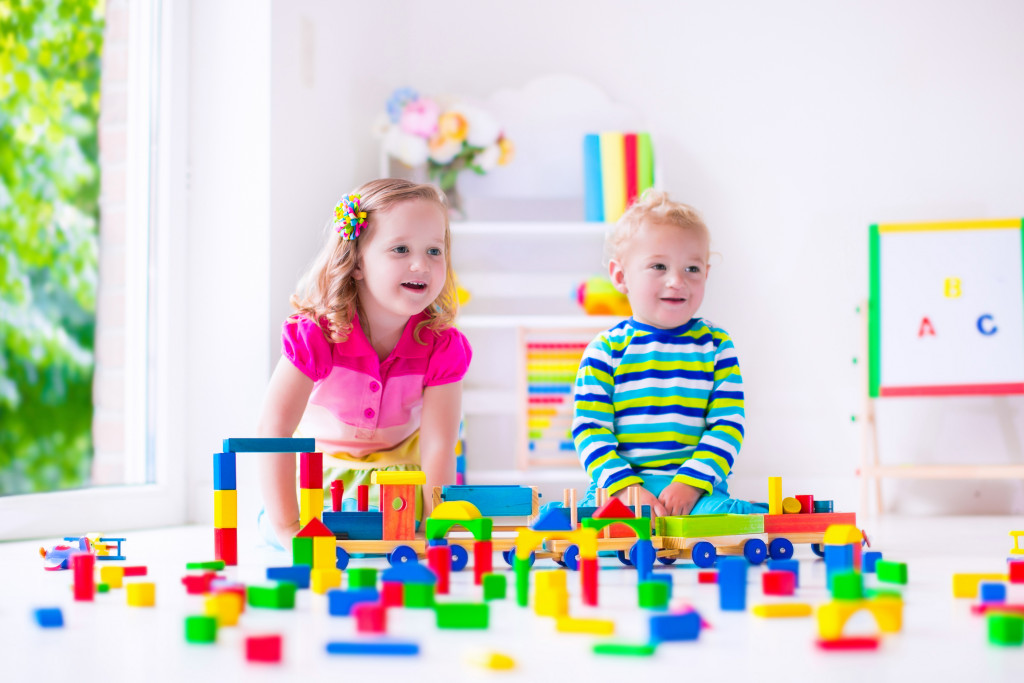- Education is a fundamental part of development, so making it fun and interactive for kids is essential to motivate them to learn.
- Discovery and exploration can help kids develop critical thinking as well as problem-solving skills.
- Hands-on activities and experiments are great ways to engage kids and teach valuable life skills.
- Educational games, puzzles, and preschool programs should be carefully chosen to provide a nurturing and stimulating environment.
- Nature walks, plant identification, role-playing, crafts projects, and storytelling offer creative learning approaches that foster cognitive, social, and emotional growth.
Education is a fundamental component of a person’s growth and development. It opens doors to many possibilities and provides essential knowledge and skills for a better life. However, the traditional approach to learning can be tedious, especially for young kids with short attention spans.
That’s why it’s essential to make education a fun journey for kids by integrating creative and interactive activities into the curriculum.
Creating a positive learning experience can help kids enhance their cognitive, emotional, and social development. Positive reinforcement can motivate kids to participate actively in learning and help them associate positive emotions with learning.
When kids feel comfortable and safe, they are more likely to engage, ask questions, and interact with the teacher and other students.
The Power of Discovery in Learning
Discovery is a powerful tool for learning. It involves exploring and experimenting to acquire new knowledge and skills. Encouraging kids to explore, ask questions, and investigate can help them discover the world around them. This approach can also help kids develop critical thinking and problem-solving skills that they can use later in life.
Encouraging Curiosity and Exploration
Curiosity is the cornerstone of learning. It is the desire to understand the world around us and the motivation to seek new information and experiences. Encouraging kids to be curious and explore their surroundings can be achieved by providing an environment that supports curiosity.
This is where parents and educators play a crucial role in creating an environment that fosters curiosity and exploration.
Incorporating Hands-on Activities and Experiments
Learning by doing is the most effective way for kids to learn. Incorporating hands-on activities and experiments can give kids a fun and engaging way to learn. It also helps them develop problem-solving, teamwork, and creativity skills.
Science experiments, art projects, and cooking activities are just a few examples of hands-on activities that can make learning more enjoyable.
Introducing Educational Games and Puzzles
Educational games and puzzles are fun and interactive for kids to learn. They can help kids develop problem-solving, critical thinking, and creativity skills. Educational games and puzzles can also improve memory retention and enhance cognitive function.
Board games, puzzles, and interactive software are just a few educational games that can make learning more enjoyable.

Enrolling in a Fun Preschool Program
Enrolling your child in a fun and engaging preschool program is an excellent way to make education a fun journey for kids. A preschool program provides kids with a structured and safe environment to learn and explore. Moreover, a good preschool program should be entertaining and exciting to keep kids engaged and interested.
Importance of Choosing the Right Preschool
Choosing the right preschool for your child is crucial. A good preschool should provide a nurturing and supportive environment where kids can learn and grow.
It should also be safe, clean, and well-maintained. Additionally, the preschool should offer a comprehensive curriculum that includes a variety of fun and engaging activities to promote learning.
Characteristics of a Fun and Engaging Preschool Program
A fun and engaging preschool program should be designed to be developmentally appropriate for young kids. The program should focus on social, emotional, physical, and cognitive development.
Additionally, the preschool should have qualified and trained teachers passionate about teaching and working with young kids. The program should also have a variety of activities, such as music, art, storytelling, and outdoor play.
Benefits of a Play-Based and Interactive Learning Environment
A play-based and interactive learning environment has many benefits for young kids. It can help them develop problem-solving, creativity, critical thinking, and teamwork skills. It also provides them with a fun and engaging way to learn.
Moreover, a play-based and interactive learning environment can help kids build their confidence and self-esteem.
Exploring the Outdoors for Learning Adventures
Nature walks, and outdoor scavenger hunts are great ways to introduce kids to the wonders of nature. This kind of activity encourages kids to observe the natural world around them, learn about different plant and animal species, and appreciate the beauty of the outdoors.
Parents and educators can plan a nature walk or scavenger hunt incorporating other learning objectives, such as identifying tree species, distinguishing bird calls, and recognizing different animal tracks.
Gardening and Plant Identification
Gardening is an excellent way to teach kids about science and nature. By digging in the dirt and planting seeds, kids can learn about the life cycle of plants, the importance of soil and water, and the role of pollinators in the ecosystem.
They can also incorporate plant identification activities that require kids to distinguish between different types of plants and flowers. This kind of hands-on learning activity is fun and teaches valuable life skills that children can carry into adulthood.
Interactive and Creative Learning Approaches
Role-playing and dramatic play are excellent ways to help kids develop cognitive, social, and emotional skills. With role-playing, kids can learn about different professions and scenarios. They can also build confidence and social interaction skills.
Parents and educators can also incorporate arts and crafts projects that allow kids to express their creativity and imagination. Storytelling and imaginative play can also foster the development of verbal and cognitive skills.

Making education a fun journey for kids is crucial to their growth and development. Encouraging curiosity, exploration, and discovery is a great way to make learning more enjoyable. Incorporating hands-on activities, educational games, and puzzles and enrolling your child in a fun preschool program can make learning more exciting.
Creating a positive learning experience is essential to motivate kids to participate actively in the learning process. As parents and educators, we should strive to make education a fun and exciting journey for kids, so they can develop essential skills that will help them succeed later in life.












